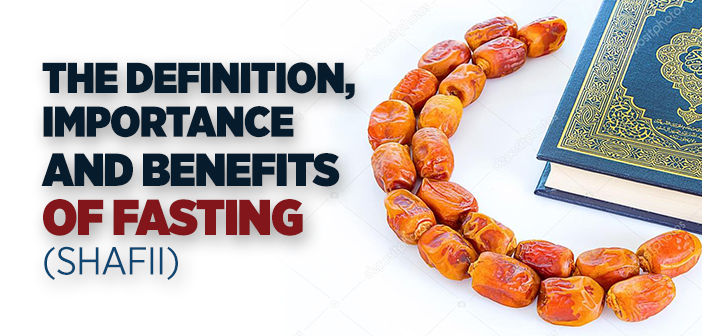What is the definition of fasting? What is the benefits of fasting?
I. The Literary and Terminological Definition of Sawm
The lexical meaning of the word sawm (fasting) is to keep oneself away from an action, to refrain oneself from eating and drinking.
In legal terminology, it means “for people who are held responsible in carrying out this act of worship, to stay away from eating, drinking and engaging in sexual relations from the time of dawn until the setting of the sun with the intention of performing an act of worship.”
I. The Importance and Benefits of Fasting
Fasting has many benefits for the people. It strengthens people’s willpower and in this way allows them to control the wants and desires of their inner self (nafs). Those who keep themselves away from committing sins due to the desires of the nafs because of fasting achieve spiritual maturity. Those who strengthen their willpower because of fasting strive to carry out Allah’s commands in the way they are meant to be carried out.
The fasting person is better suited to appreciate the value of Allah’s blessings since at that time he is not able to benefit from them and due to staying hungry all day long he will learn to refrain from wasting them. Along with these, he is always in the state of the remembrance of Allah, the One that has bestowed upon him everything that he possesses. When the fasting person achieves this mindset, he will naturally keep himself away from committing sins.
People may encounter many difficulties and tribulations in their lives and for the individual to be able to stay strong and overcome these difficulties and tribulations, he/she must have sabr (patience). Fasting teaches a person to be patient. Our Prophet (pbuh) expressed this truth by stating: “Fasting, constitutes half of the patience.”[1]
Moreover, the person who fasts better appreciates the state of the poor. He reaches out his hand to help them even more than he ever has.
Another hadith expressing the importance of fasting is as follows: A man came to the Messenger of Allah (pbuh) and said, “Order me to do something that Allah will make me benefit from.” Our Prophet (pbuh) stated, “I recommend fasting to you, continue with that. Because that is an act of worship with no equal.”[2]
This is because fasting vitalizes the feelings of compassion, love and mercy in people, it enables the peaceful feelings to replace resentments and disappointments.
Fasting causes people’s body to get some rest, and then to work in the proper way. Due to fasting the harmful fats, which are accumulated in the body, are cleansed away and the body gains vigor. This is why our beloved Prophet stated: “Fast and you will gain health.”[3]
Another saying of our Prophet regarding fasting is as follows: “Fasting is a shield. When any one of you is fasting on a day, he should neither indulge in obscene language, nor raise the voice; or if anyone reviles him or tries to quarrel with him he should say: I am a person fasting. By Him, in Whose Hand is the life of Muhammad, the breath of the observer of fast is sweeter to Allah on the Day of Judgment than the fragrance of musk. The one who fasts has two ( occasions) of joy, one when he breaks the fast he is glad with the breaking of ( the fast) and one when he meets his Lord he is glad with his fast.”[4]
Our Prophet (pbuh) expressed with the following hadith that fasting is also the reason for why sins will be forgiven. “Whosoever fasts in the month of Ramadan out of sincere faith, and hoping for a reward from Allah, then all his previous sins will be forgiven.”
[1] Sunan Ibn Maja, Kitab al-Siyam, 44.
[2] Sunan al-Nasai, Kitab al-Siyam, IV, 165.
[3] Sunan al-Tabarani, Bab al-sawm, 5.
[4] Sahih al-Muslim, Kitab al-Siyam, 162.
Source: Fiqh1 (According To The Shafi’i School Of Islamic Law), Erkam Publications





